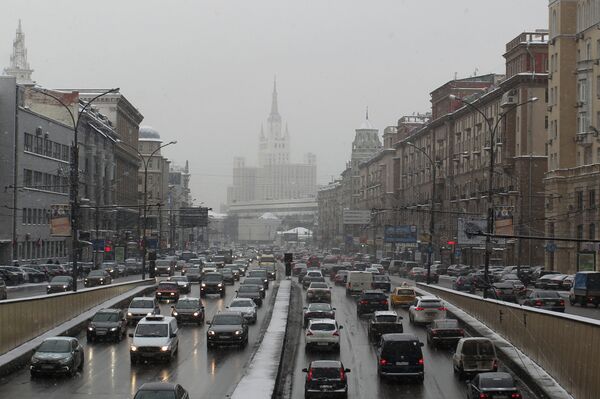In late-2010, Moscow ground to a halt in a record 2,800-km traffic jam. Not only did it cause mass panic, scuttled meetings and even missed flights; apart from eliciting the number one problem for the biggest city in Russian Federation it also made some analysts put this problem in comparison with the overall state of the Russian economy. In just one day it turned as plain as daylight that the transportation and infrastructure issue is just as important for a big city, as all others, like underinvestment, demographics, labour market, savings, competition, etc.
How tough is the transportation issue for other mega cities today? It depends, says Vadim Khrapoun, PwC Russia Advisory Leader.
“It depends on how the city was originally planned and what kind of capacity the road infrastructure had when the city was built. The city of Moscow, for example, was built for a much smaller number of cars than currently exists in Moscow. Therefore very often the extension, or expansion of road system may not resolve the issue, so one of the solutions for Moscow in particular is to develop a great network of public transport,” Vadim Khrapoun said.
It’s exactly what is being done now. The metro is being expanded, trams modernised and commuter rail-lines upgraded. Forty thousand taxis have been licensed, and a new ring-road planned. Over the last few years, Moscow's new mayor team has accelerated road-building, introduced intelligent traffic signals as well as traffic cameras, tightened restrictions on commercial vehicles entering the city, and most importantly introduced and enforced parking restrictions in the city centre. Former Deputy Mayor of Moscow for economic issues who was part of the team of innovators, Andrei Sharonov, says expanding public transport, subway system in the first place, is now the key priority in solving the traffic issue in Moscow.
“There’s a very ambitious program for coming six years to increase the existing infrastructure of subway system twofold… It’s a very expensive and difficult task, but nevertheless we see some progress,” Andrei Sharonov said.
Indeed, fast-forward several years, and the city government has had some initial success in getting traffic moving again, albeit slowly. A small example of what Russia can deliver when things grind to a halt. Could we see similar progress with broader economic reforms in Russia? That remains to be seen.

